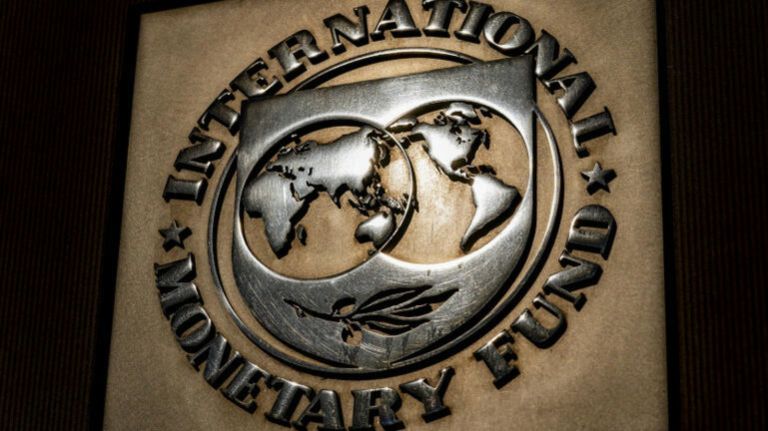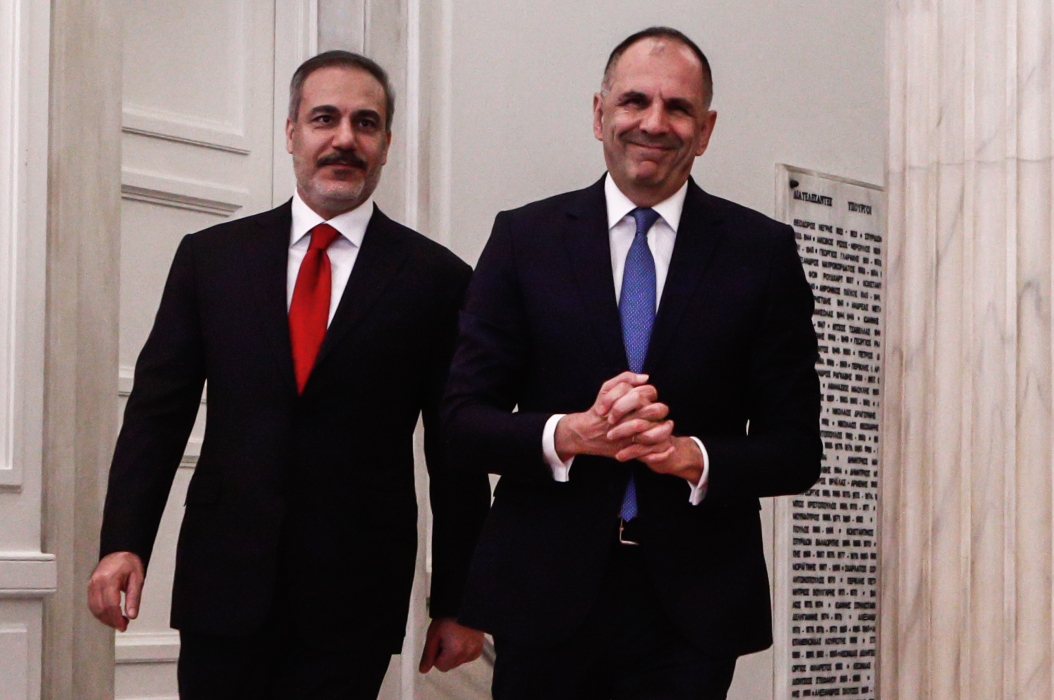IMF: Recommendation to Greece to restrain salaries and pensions

Πηγή Φωτογραφίας: Διαδίκτυο, “The right mix of policies” in three main pillars was recommended by the head of the IMF mission for Greece, Gong Shik Kang, speaking online to journalists on the occasion of the completion of the IMF mission in Greece.
“The right mix of policies” in three main pillars was recommended by the head of the IMF mission for Greece, Gong Shik Kang, speaking online to journalists on the occasion of the completion of the IMF mission in Greece.
The IMF sees government wages and pensions as high, suggests 2% surpluses, sees inflationary risks, as well as possible risks due to interest rates.
The IMF sees inflationary risks in the event of an escalation of the war in Ukraine and the conflict in the Middle East, as energy and food prices may rise, but in the event of shocks due to extreme weather events
“Greece’s economic prospects have improved significantly. We expect that the economy will continue to grow robustly this year and next year by 2.5% and 2% respectively” said G.S. Kang at the beginning of the online press conference.
However, as stated in the IMF statement, the economy faces macroeconomic challenges amid significant monetary policy tightening, persistent structural inflation and rising property prices, while structural imbalances resulting from low household savings, the still low level of investment and climate changes affect medium-term growth prospects.
Predictions
As pointed out, due to the negative demographic outlook, the expiry of the Next Generation EU (NGEU) in 2026 and low potential growth, growth will moderate to 1.25% in the medium term, while inflation will remain high and is expected to decrease to 2% at the end of 2025 as structural inflationary pressures will gradually ease despite continued normalization in food and energy prices.
The IMF sees inflationary risks in the event of an escalation of the war in Ukraine and the conflict in the Middle East, as energy and food prices may rise, but in the event of a shock due to extreme weather events.
Regarding public finances, G.S. Kang noted that “public debt to GDP has fallen below the pre-pandemic level, and debt financing risks are limited in the medium term due to the favorable debt structure.”
But he recommended “continued fiscal consolidation with the primary surplus rising to 2.1% of GDP in 2024 and maintained at around 2% of GDP in the medium term to strike a good balance between ensuring public debt sustainability and promoting more sustainable, greener and inclusive growth”. He even emphasized that in view of the end of the debt grace period (in 2032) it is important to maintain primary surpluses at 2% of GDP.
The IMF also recommends restraint on spending, especially on public sector wages and pensions, which it says “remain at high levels compared to other countries.”
However, the IMF encourages maintaining or even increasing spending on targeted social transfers, health and education.
Banking System
Regarding the financial system, G.S. Kang said it “remained resilient with improving bank balance sheets.
Asset quality has improved with continued decline in non-performing loan ratios, there is ample liquidity in the banking system and bank capital has been strengthened with increased bank profits.”
But he advised that “as we are in a prolonged higher interest rate environment, any potential risks related to interest rates, liquidity and credit exposures should continue to be closely monitored.
At the same time, we see the need to strengthen macroprudential supervision tools and their active use to ensure financial stability against emerging risks.”
In fact, he specifically referred to recommendations to the Bank of Greece.
“We recommend that the Bank of Greece activate a positive neutral countercyclical buffer and introduce measures based on mortgage borrowers, such as loan-to-value ceilings and debt-service-to-income ceilings to strengthen the resilience of households and to limit the vulnerabilities of the banking system against emerging risks in the future”.
As mentioned in the conclusions of the IMF, the replacement of the targeted longer-term refinancing operations – TLTROs with more expensive financing from the market can create challenges.
He recommended proactive credit risk management to ensure that banks maintain comfortable capital buffers, even suggesting that temporarily increased profits be used to create buffers.
It also recommended continued reforms, emphasizing further streamlining of regulations to facilitate business entry and exit, greater labor force participation by youth, women and the elderly, and strengthening reforms of the judicial system and out-of-court procedures.
Πηγή: ot.gr/Maria Vassiliou
Διαβάστε όλες τις τελευταίες Ειδήσεις από την Ελλάδα και τον Κόσμο





























Το σχόλιο σας